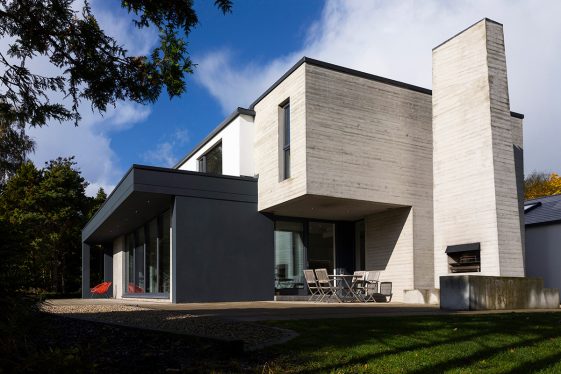Understanding Planning Permissions
Home extensions can be an exciting project, but it’s essential to ensure you have the correct permissions in place. Although you might not always require a planning permission for your extension in Ireland, you need to meet specific criteria. For instance, in the Republic of Ireland (ROI), your floor area should be less than 40sqm. Simultaneously, in Northern Ireland (NI), the eaves height should not exceed 3m. If unsure, you can request a Section 5 Declaration in ROI or a Certificate of Lawful Development in NI from your local authority. Always ensure your plans align with all relevant building regulations.
Financial Planning for Your Extension
Before diving into your home extension project, it’s paramount to evaluate your budget. Ascertain that your finances are adequately arranged. Consider all the potential costs, including design and planning fees, insurance, warranties, and construction costs.

The Essence of Design
While size can be deceiving, a small space doesn’t mean it shouldn’t be aesthetically pleasing or functional. For instance, if you’re planning a kitchen extension, consider its orientation. If you prefer it bathed in the morning sun, ensure it faces the east. Account for the site’s context and how it integrates with the existing structure. Seeking professional assistance? An architectural designer can sketch your vision, while a structural engineer can assist with specifications, such as choosing the right steel. If energy efficiency is a priority, a building energy assessor can be invaluable. Always verify the credentials and insurance of professionals you hire.
Navigating Building Regulations
Any renovation work, regardless of its magnitude, must comply with building regulations. Familiarise yourself with technical guidance documents and booklets related to your project. Consulting a building professional can also provide invaluable insights.
Pre-selecting Finishes
Choosing finishes like windows, doors, kitchen setups, tiles, etc., well in advance can be both cost-effective and time-saving. Early decisions streamline the design process and assist in budgeting. Detailed construction drawings can give a clear idea of the expected expenses. However, without a thorough specification, costs might escalate unexpectedly.

Understanding Building Control Requirements
Once you’ve secured planning permission, be prepared to navigate the building control process. In ROI, this means filing a commencement notice via the Building Control Management System, similar to a new build process. In NI, even exempted works from planning permission, such as a roof space conversion, need to notify the Building Control. Remember, any structural or insulation work has to be registered with Building Control.
Safety First: Health and Safety Compliance
For projects that last over 30 days or involve significant risks, it’s mandatory to notify health and safety authorities – HSA in ROI and HSENI in NI. This step also involves appointing health and safety supervisors for design and construction. A health and safety ledger maintained on-site is a requirement.
Insurance Checks
Ensure that your current home insurance remains valid during the construction phase. Check if it can extend to cover the site during the works. If a contractor manages your project, their insurance should cover vital aspects like public liability and employer’s liability.
Building Neighbourly Relations
While you might have all permissions in place, always inform your neighbours about your plans. Doing so at an early stage, even during the conceptual phase, is considered good etiquette. They might have insights or historical data about your property that could be valuable.

The Final Phase: Building and Snagging
Once the planning is done, the real work begins. Building and snagging stages mirror those of a new construction. For a detailed walkthrough, you can refer to relevant guides or expert articles on the subject.
This comprehensive guide aims to simplify the complex process of home extensions in Ireland, making it digestible for anyone considering such a venture. Proper planning and adherence to guidelines ensure that your extension not only adds value to your home but also complies with all regulatory standards.




